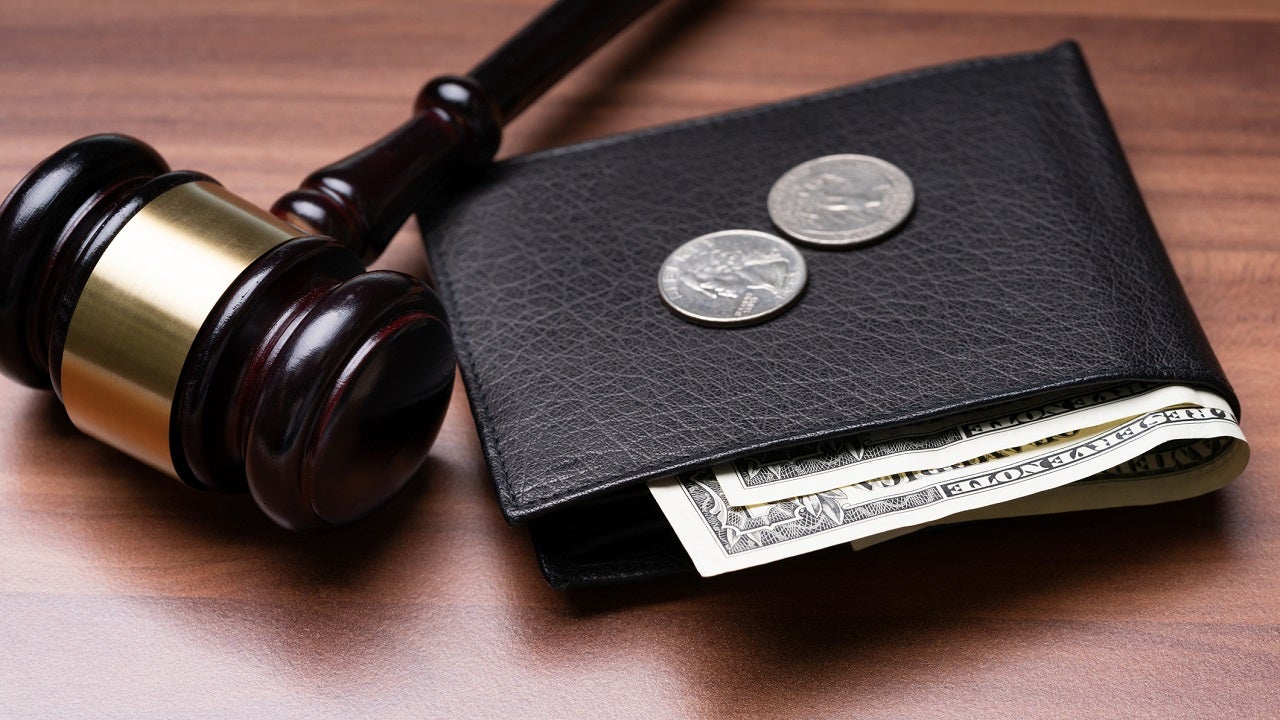Will filing for bankruptcy clear all my debt?




Key takeaways
- Filing for bankruptcy can help you discharge debts and regain control of your finances.
- Bankruptcy clears many kinds of debt but does not necessarily release you of all debt obligations.
- Owed taxes and court-mandated payments like alimony and child support often must still be paid, even after bankruptcy is granted.
For some debt-burdened consumers, bankruptcy is an appropriate solution. However, people weighing the pros and cons of bankruptcy may wonder if doing so would discharge all of their debts.
The answer to this question is often no. While both Chapter 7 and Chapter 13 bankruptcy clear many kinds of debt from a filer’s credit profile, neither provides a guaranteed clean slate.
Borrowers overwhelmed by debts from credit cards, personal loans or medical debt may find relief by filing for bankruptcy. However, bankruptcy doesn’t clear all types of debt and is not the best solution for many.
How discharge works in bankruptcy
In a successful bankruptcy case, some debts are discharged. Discharges are granted with a legal document known as a Discharge of Debtor. A bankruptcy discharge means you are no longer legally obligated to pay specified debts. It also means that your creditors are no longer allowed to take collection action against you regarding that debt.
Chapter 7 and Chapter 13 are the two most common types of bankruptcy individuals can use to discharge debt.
Chapter 7
In a successful Chapter 7 bankruptcy case, some of the individual’s assets are liquidated (sold) to pay off some of the debt. The remaining balance is typically discharged.
When you file for Chapter 7 bankruptcy, the court appoints a trustee to sell your assets. The proceeds from the sale go to pay the creditors. Once a portion of the debt has been paid, the court will discharge most remaining obligations.
Not all assets will be sold. Typically, filers may retain one necessary automobile, clothing, pensions, Social Security benefits and part of their home equity.
The discharge process takes about four to six months after a bankruptcy petition is filed.
Chapter 7 bankruptcy is available only to individuals who can prove they don’t earn enough income to repay their debts and meet other requirements. In many cases, the court may require filers who don’t meet the criteria to file for Chapter 13 bankruptcy.
Chapter 13
Chapter 13 bankruptcy involves creating a repayment plan for a portion or all of your outstanding debt. The repayment plan is structured to last three to five years. As long as you meet the payment obligations, you can keep your nonexempt assets (such as a second property and vehicle, boat or investment accounts).
Only at the end of the repayment period is your remaining debt discharged.
You have to qualify to be eligible for Chapter 7 by doing a means test to prove you wouldn’t be able to pay your debts. If you don’t qualify, Chapter 13 would be your only bankruptcy option.
Debts that can’t be eliminated in bankruptcy
Although bankruptcy can clear some debt, it can’t eliminate all financial obligations.
No matter whether you file for Chapter 7 or Chapter 13 bankruptcy, the types of debts that cannot be cleared include:
- Court fines and penalties.
- Court-ordered alimony or child support payments.
- Criminal fines and restitution debts that are included in a sentence for a conviction.
- Debt due to death or personal injury caused by driving while intoxicated or under the influence of drugs.
- Debt related to government benefit overpayments.
- Reaffirmed debt — debt that you agree to remain legally obligated to repay. This usually includes secured debts such as house or car loans in which you wish to retain the asset.
- State and federal tax liens (although, in some cases, older income tax debt may be discharged). An offer in compromise may help with tax debts.
Other discharge limitations
Some situations change what debt is eligible for discharge:
- Luxury goods purchased too close to filing: Courts will also often refuse to discharge debt related to purchasing luxury goods and services — in other words, items that aren’t essential purchases — that you incurred within 90 days before the initial filing and cost more than $800.
- Recent cash advances: Cash advances of $1,100 or more made within 70 days before filing also can’t be discharged.
- Student debt: Historically, student loan debt has not been eligible for bankruptcy discharge. However, this rule was changed in 2022, and the discharge of part or all of student loan debt may be possible in some situations.
- Type of bankruptcy: There are discharge limitations specific to the type of bankruptcy filing. For example, Chapter 13 bankruptcy does not discharge mortgage payments.
- Undisclosed debt: Debt not mentioned in the initial bankruptcy filing may not be discharged. This debt is considered fraudulent because the filer withheld information from the courts during the filing process.
You may not qualify for bankruptcy if:
- The bulk of your debt is non-dischargeable.
- You have recently received a previous bankruptcy discharge.
- You’ve been dishonest in your bankruptcy filing.
- You fail to attend mandatory credit counseling sessions.
Other options for dealing with debt
Although bankruptcy can provide financial relief — excluding the debts that can’t be discharged — it will negatively affect your credit scores and reports. Bankruptcy can also result in the loss of some assets that you may otherwise wish to keep, including investment accounts, jewelry and recreational vehicles. Some people also don’t qualify for bankruptcy.
If bankruptcy isn’t the right option for you, you can look into other debt relief methods.
Debt consolidation
Debt consolidation is when you pay off debts with a new loan or line of credit, allowing you to combine all your debts into one.
If you have good credit despite a high level of debt, you may qualify for a debt consolidation loan. You could also use a balance transfer credit card. These credit cards often offer special promotional periods during which you may pay zero interest. People with equity in their homes could also use a home equity loan or line of credit to get better interest rates.
These options may not be available if your credit rating is below good or excellent. If you are eligible but have lower credit scores, the fees and interest rates may make debt consolidation not worth it. It’s helpful to use a debt consolidation calculator to help you decide if it is right for you.
Debt settlement
Sometimes it may be possible — either using a debt settlement company or on your own — to negotiate to pay a lower amount than you originally owed. In 2023, debt settlement resulted in an average savings of $1,441 for consumers.
A debt settlement company often has you pay them a certain amount each month instead of paying your credit card or loan payments. The company uses that money to offer a larger lump-sum payment. Because the creditor hasn’t been getting paid, they might negotiate because some money is better than not getting any payments. If you’re negotiating on your own, you’ll still need a large payment to be able to offer your creditors.
However, debt settlement isn’t necessarily a better option than bankruptcy. It may even be worse.
Because creditors won’t want to negotiate until you’re behind on payments, your credit score will suffer for a long time. The missed payments and debt settlement will stay on your credit reports for a long time. With bankruptcy, you may be able to improve your credit faster with positive credit actions.
There is also no guarantee the creditor will accept your offer, leaving you with fines and a worse credit score but no relief from your debt.
Nonprofit credit counseling
Nonprofit credit counseling services, such as those accredited by the National Foundation for Credit Counseling (NFCC), can also help you get out of debt.
Many of these services can help you set up a debt management plan that will help you pay off your debt in three to five years. Typically, these plans charge lower interest rates than what you’ll find with most credit cards.
In addition, credit counseling services can also help you adopt other healthy financial habits, such as creating and sticking to a budget. These measures can help you repay your debt and avoid repeating the same costly mistakes.
The bottom line
Filing for bankruptcy can help you discharge some — but not necessarily all — of your debt. You may still be on the hook if you owe back taxes, child support or alimony payments, court-ordered fines or several other types of debt.
By learning more about what bankruptcy can and can’t do, you can be better prepared to take the first steps toward a brighter financial future.
Frequently asked questions
Why we ask for feedback Your feedback helps us improve our content and services. It takes less than a minute to complete.
Your responses are anonymous and will only be used for improving our website.




